
OR
Last living Gurkha VC Captain Ram Bahadur Limbu passes away
Published On: April 22, 2023 07:00 PM NPT By: Kosh Raj Koirala | @KoshRKoirala
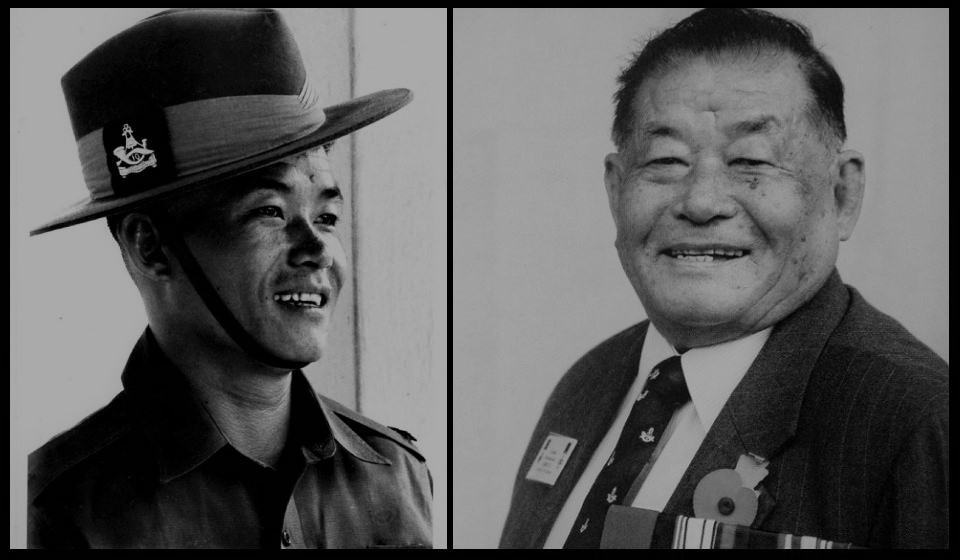
KATHMANDU, April 22: Captain Ram Bahadur Limbu VC, MVO, a distinguished British Gurkha soldier known for his bravery and valor on the battlefield, has passed away on Saturday. He was 83.
His son Mohan Begha Limbu reported that his father passed away at 3:45 am this morning while receiving treatment at Mediciti Hospital in Lalitpur. Limbu had been unwell for the past six months and had initially received treatment at B&C Hospital in Jhapa for kidney and heart-related issues.
However, as his condition failed to improve, he was brought to Kathmandu for further treatment. Captain Limbu was brought to Kathmandu by chartering a helicopter with the assistance and coordination of Gorkha Welfare and Armed Police after his health deteriorated.
Initially, Limbu was transported to and from his home in Nakhipot to Nepal Mediciti Hospital for the first two months. However, he was eventually admitted to the hospital last month. According to Mohan, his father's last rites will be held in Damak Municipality-8, where he lived permanently.
Captain Limbu earned the Victoria Cross (VC) for his heroic actions during the Borneo Confrontation in November 1965 when, as a 26-year-old Lance Corporal serving in the 2nd Battalion of the 10th Princess Mary’s Own Gurkha Rifles, he rescued two of his men under intense enemy fire and after securing their safety fought valiantly against enemy soldiers. He then served in the 2nd Battalion of the 10th Princess Mary’s Own Gurkha Rifles.
Queen Elizabeth II awarded him with the Victoria Cross at Buckingham Palace in 1966 for his actions that day. His award was announced shortly after his first wife, Tikamaya Bhega, died in Singapore while he was on operations in Borneo, leaving him with two young sons, Bhakta and Chandra. Bhakta was flown to England at the request of the Queen for his father’s investiture.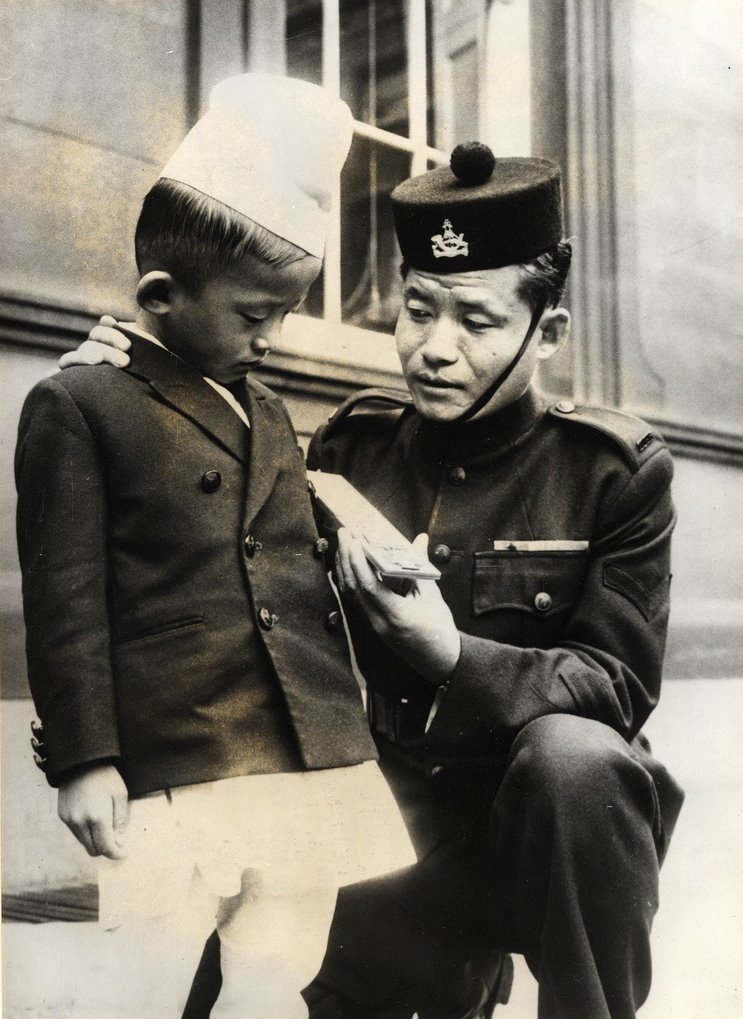
In 1966, at Buckingham Palace, Rambahadur Limbu VC shows his son the Victoria Cross. (Photo courtesy: Gurkha Welfare Trust)
Captain Limbu was also appointed as a Member of the Victorian Order in 1984 for his services as a Queen’s Gurkha Orderly Officer, and he retired from the British Army as a Captain after 28 years of service. Additionally, he served in the Sultan of Brunei’s Gurkhas Reserve Unit (GRU) for eight years as a Company 2IC.
On leaving the GRU he retired to Damak in Jhapa district. He regularly attended VC & GC Reunions and represented the Overseas recipients of those awards, according to Gurkha Welfare Trust (GWF).
The GWF, a charity that helps Gurkha veterans and their dependents, featured Captain Limbu in its first-ever public appeal to the British public in 1969, urging them to support those who have sacrificed so much for the country.
Captain Limbu is survived by his second wife Eunimaya and his three children Bhakta, Chandra, and Giwan. The Gurkha Welfare Trust has expressed its deepest condolences to the family and friends of Captain Limbu and has honored him by naming their residential home in Dharan in the east of Nepal after him, according to the GWF.
Capt Limbu VC at Remembrance Service 2019 in Dharan (Photo courtesy: Gurkha Welfare Trust)
The VC is the highest military decoration awarded to members of the British or Commonwealth armed forces for acts of valour or gallantry in the presence of the enemy. Established in 1856, it is one of the most prestigious awards for bravery in the British honours system and many Commonwealth nations.
Since its inception, the Victoria Cross has been awarded 1,356 times, including to three individuals who have been awarded the VC twice for separate acts of heroism. A total of 13 British Gurkha soliders were awarded with VC including Ram Bahadur Limbu.
Limbu was the last living Gurkha VC. Twelve other British Gurkha soldiers, who received VC included Kul Bir Thapa, Karan Bahdur Rana, Lal Bahadur Thapa, Gaje Ghale, Tul Bahadur Pun, Netra Bahadur Thapa, Sher Bahadur Thapa, Agam Singh Rai, Thaman Gurung, Ganju Lama, Lachhiman Gurung and Bhanu Bhakta Gurung.
Victoria Cross Citation
Captain Rambahadur Limbu VC, MVO
10th Princess Mary’s Own Gurkha Rifles
‘On 21st November 1965 in the Bau District of Sarawak, Lance Corporal Limbu was with his company when they discovered and attacked a strong enemy force located in the border area. The enemies were strongly entrenched in platoon strength on top of a sheer hill the only approach to which was along a knife edge ridge allowing only three men to move abreast. Leading his support group in the van of the attack he could see the nearest trench and in it a sentry manning a machine gun. Determined to obtain first blood, he inched himself forward, until, still ten yards from his enemy, he was seen, and the sentry opened fire wounding a man to his right. Rushing forward he reached the enemy trench in seconds and killed the sentry, thereby gaining for the attacking force a first, but firm foothold on the objective. The enemy were now fully alerted and, from their positions in depth, brought down heavy automatic fire on the attacking force concentrating this on the area of the trench held alone by Lance Corporal Rambahadur Limbu.
Appreciating that he could not carry out his task of supporting his platoon from this position he courageously left the comparative safety of his trench, and, with complete disregard for the hail of fire being directed at him, he got together and led his fire group to a better fire position some yards ahead. He now attempted to indicate his intentions to his Platoon Commander by shouting and hand signals, but failing to do so in the deafening noise of exploding hand grenades and continuous automatic fire he again move out into the open and reported personally, despite the extreme dangers of being hit by the fire not only from the enemy but his own comrades.
It was at the moment of reporting that he saw both men of his own group seriously wounded. Knowing that their only hope of survival was immediate first aid and that evacuation from their very exposed position so close to the enemy was vital, he immediately commenced the first of three supremely gallant attempts to rescue his comrades. Using what little ground cover he could find he crawled forward, in full view of at least two enemy machine gun posts who concentrated their fire on him and which, at this stage of the battle, could not be effectively subdued by the rest of his platoon. For three full minutes he continued to move forward but when he was almost able to touch the nearest casualty he was driven back by the accurate and intense weight of fire covering his line of approach. After a pause he again started to crawl forward but he soon realised that only speed would give him the cover the ground could not. Rushing forward he hurled himself on the ground beside one of the wounded, and calling for support from two LMGs which had now come up to his right in support he picked up the man and carried him to safety out of the line of fire. Without hesitation he immediately returned to the top of the hill, determined to complete his self-imposed task of saving those for whom he felt personally responsible. It was now clear from the increased weight of fire being concentrated on the approaches to and in the immediate vicinity of the remaining casualty the enemy were doing all they could to prevent any further attempts at rescue. However, despite this, Lance Corporal Rambahadur again moved out into the open for his final effort. In a series of short rushes and once pinned down for some minutes by the intense and accurate automatic fire which could be seen striking the ground all around him he eventually reached the wounded man. Picking him up, and unable now to seek cover, he carried him back as fast as he could through a hail of enemy bullets. It had taken twenty minutes to complete this gallant action and the events leading up to it. For all but a few seconds this young NCO had been moving alone in full view of the enemy under the continuous aimed fire of their automatic weapons. That he was able to achieve what he did against such overwhelming odds without being hit is miraculous. His outstanding personal bravery, selfless conduct, complete contempt for the enemy and determination to save the lives of the men in his fire group set an incomparable example and inspired all who saw him.
Finally rejoining his section on the left flank Lance Corporal Rambahadur was able to recover the LMG abandoned by the wounded and with it won his revenge, initially giving fire support during the later stages of a prolonged assault and finally being responsible for killing four more enemy as they attempted to escape across the border. This hour long battle which had been fought with the utmost ferocity by both sides was finally won. At least twenty-four enemy are known to have died at a cost to the attacking force of three killed and two wounded. In scale and in achievement this engagement stands out as one of the first importance and there is no doubt that, but for the inspired conduct and example set by Lance Corporal Rambahadur at the most vital stage of the battle, much less would have been achieved and greater casualties caused.
He displayed heroism, self sacrifice and devotion to his men of the very highest order. His actions on this day reached the zenith of determined and premeditated valour which must count amongst the most notable on record and is deserving of the greatest admiration and highest praise.’
You May Like This
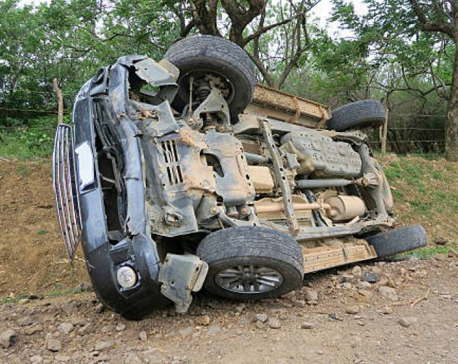
Eight killed in Palpa jeep accident
KATHMANDU, Feb 13: At least eight people were killed in a jeep accident that occurred in Palpa on Tuesday evening. Read More...
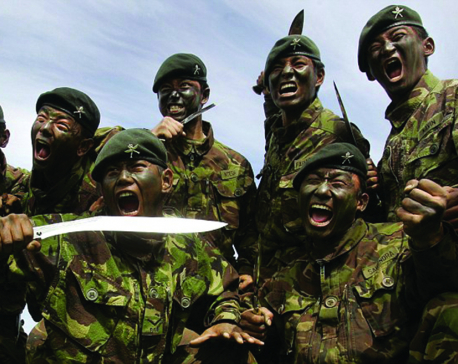
Ex-Gurkhas threaten to disrupt recruitment process
KATHMANDU, Feb 21: A senior official representing the ex-British Gurkhas said Wednesday that they turned down ‘an offer’ from the British... Read More...

Leopard enters Balagaun, meets tragic death
KATHMANDU, Aug 2: Balagaun villagers in Chandragiri Municipality of Kathmandu on Monday killed a leopard that had entered the village... Read More...










Just In
- NRB introduces cautiously flexible measures to address ongoing slowdown in various economic sectors
- Forced Covid-19 cremations: is it too late for redemption?
- NRB to provide collateral-free loans to foreign employment seekers
- NEB to publish Grade 12 results next week
- Body handover begins; Relatives remain dissatisfied with insurance, compensation amount
- NC defers its plan to join Koshi govt
- NRB to review microfinance loan interest rate
- 134 dead in floods and landslides since onset of monsoon this year



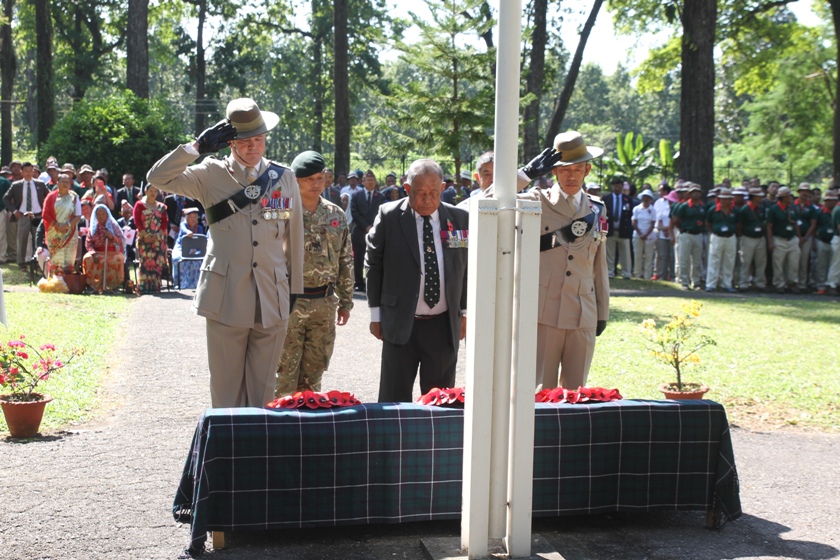





Leave A Comment